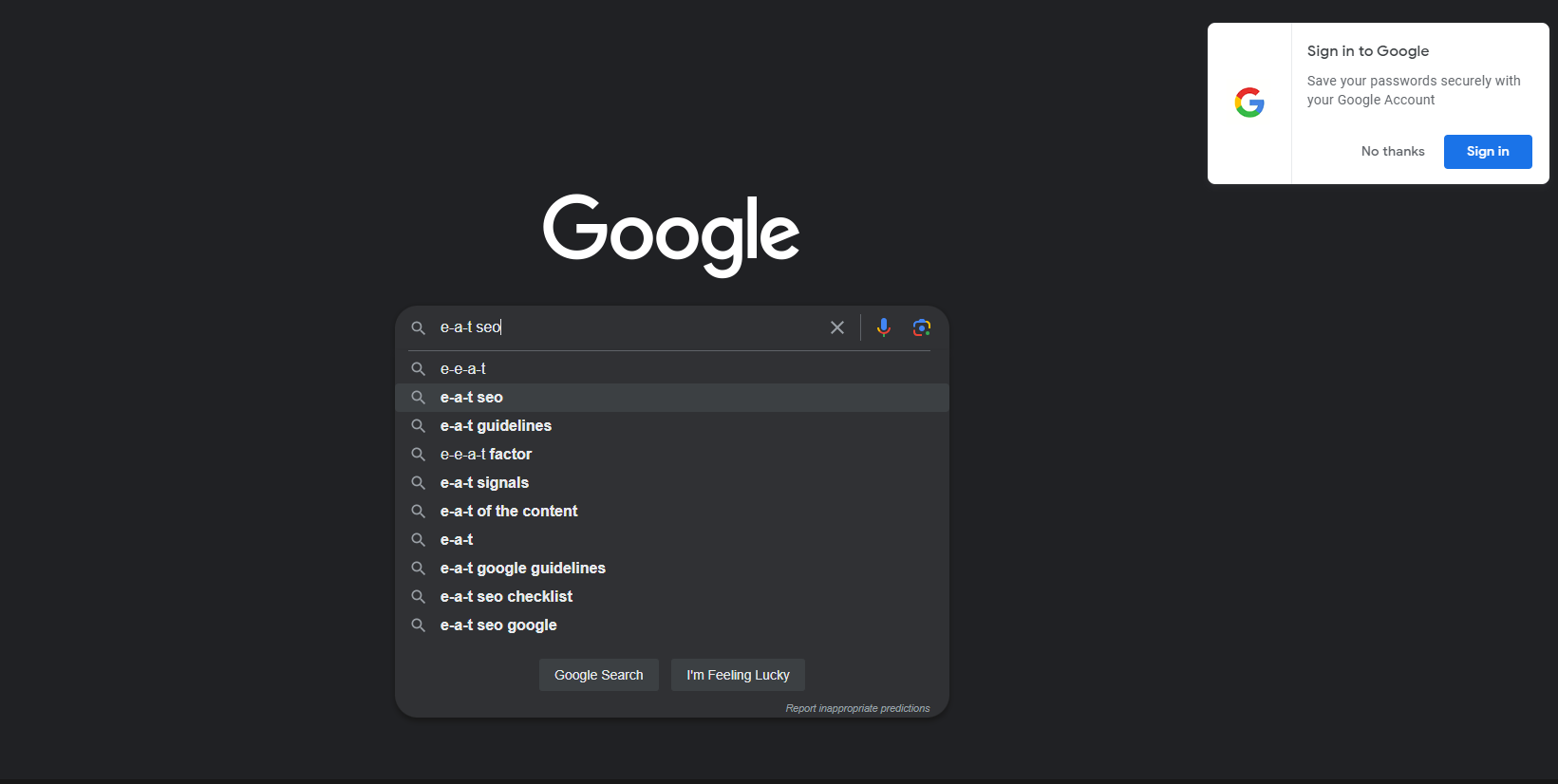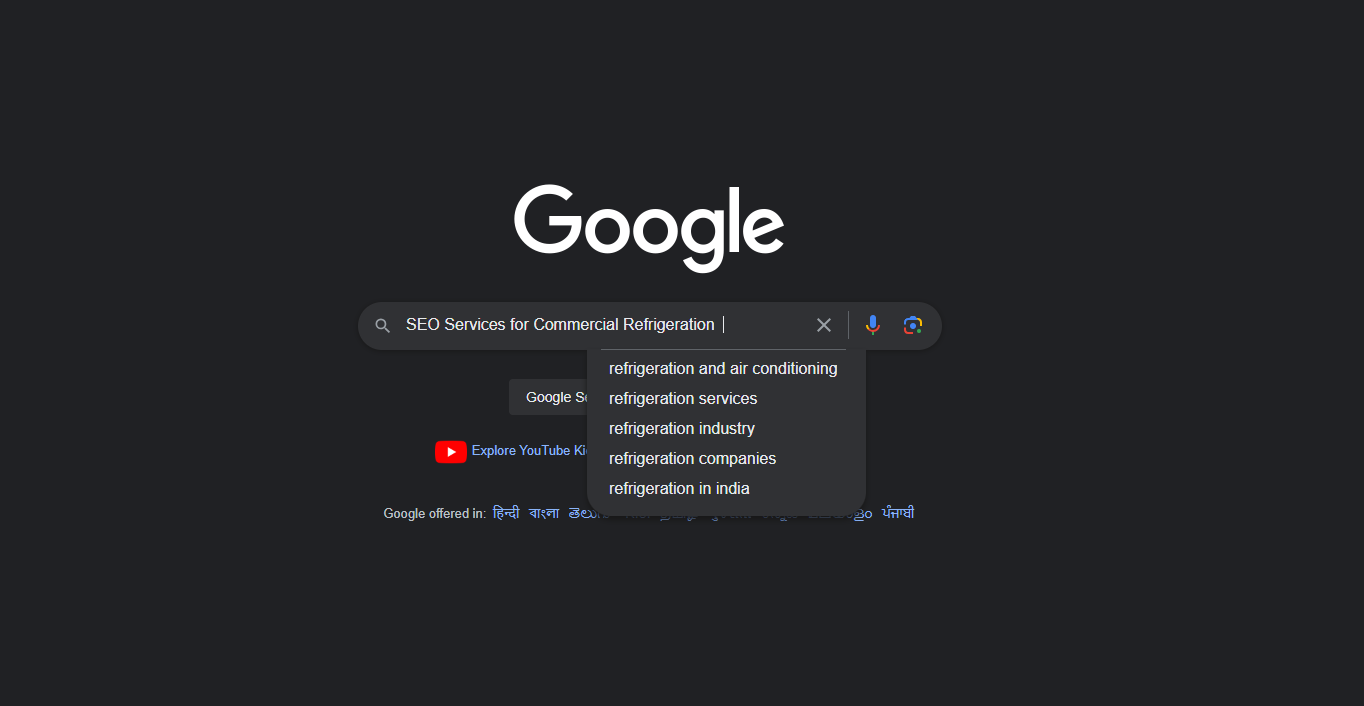According to most sources, there are over a billion web pages on the Internet, but only about 20% are actively maintained. That still leaves a staggering number of pages that Google has to comb through whenever a person enters a search query. To provide users with the best, most relevant search results, Google continues to improve and evolve its search engine algorithm, with 5,150 changes made to Search in 2021 alone. Now, we’re not always privy to how Google does things (as a lot of competitors stand to benefit from any proprietary information it gleans from the company and its search algorithms), but they have given SEO and digital marketing firms and practitioners extensive guidelines as to how they rate and evaluate pages. One of these is the concept of E-E-A-T.
What is E-E-A-T?
E-E-A-T stands for Experience, Expertise, Authoritativeness, and Trustworthiness. Originally E-A-T, Experience was added in December 2022 to expand the concept’s coverage. They are part of Google’s Search Quality Evaluator Guidelines and, according to the company, are all important considerations for Search Quality ratings, particularly in YMYL (Your Money or Your Life) content.
How Does E-E-A-T Matter in Page Ranking?
There is a certain degree of ambiguity when it comes to E-E-A-T and its actual impact and implementation in page quality and search engine rankings. On one hand, Google confirms that their algorithms do not have a specified internal E-E-A-T score, which means that these standalone factors — as they are presented in this context — are not rigidly quantified in any way.
However, they are important considerations that are used by human evaluators — the ones that work on and tweak Search. This means that, despite the lack of a clear scoring mechanism for E-E-A-T itself, its impact is felt in most of Google’s working algorithms. It is entirely possible that these factors have a plethora of overlapping algorithms dedicated to each of them, which work as a whole to create and maintain the website rankings we see on SERPs. As such, we can say that E-E-A-T is a way to simplify how page rankings are calculated in Google Search.
These concepts are a result of Google’s endless experimentation with Search and were discussed in the “Updating Our Search Quality Rating Guidelines” post back in November 2015, which was the same year the concept of E-A-T was introduced. An excerpt from the announcement post goes like this:
“Developing algorithmic changes to search involves a process of experimentation. Part of that experimentation is having evaluators—people who assess the quality of Google’s search results—give us feedback on our experiments. Ratings from evaluators do not determine individual site rankings, but are used help us understand our experiments. The evaluators base their ratings on guidelines we give them; the guidelines reflect what Google thinks search users want.
“In 2013, we published our human rating guidelines to provide transparency on how Google works and to help webmasters understand what Google looks for in web pages. Since that time, a lot has changed: notably, more people have smartphones than ever before and more searches are done on mobile devices today than on computers.”
Explaining E-E-A-T in Detail
While there is some overlap between each concept, they have strategic differences that are enough to warrant separation, and some of them are more important than others. Here we’ll discuss each of them:
Experience
To produce quality content about any subject matter, the creator must have first-hand experience with it. Google explains Experience as such in their updated SQE Guidelines:
“Consider the extent to which the content creator has the necessary first-hand or life experience for the topic. Many types of pages are trustworthy and achieve their purpose well when created by people with a wealth of personal experience. For example, which would you trust: a product review from someone who has personally used the product or a “review” by someone who has not?”
Based on the definition above, it’s clear why Google chose to separate Experience from Expertise. While the two terms can be interchangeable in some contexts, Experience refers to the creator’s exposure to the subject, activity, or event in question regarding SQE, regardless of degree. Anybody with first-hand experience with a product can provide details and reviews about it without having to call upon any prior competencies required to make someone an expert in that particular product.
Expertise
Expertise refers to the degree of familiarization or skill of the content creators or the website. Google evaluates the expertise of individuals or organizations based on factors such as their qualifications, experience, and reputation in their field and chosen subject matter. The SQE Guidelines provide more information about the concept.
“Consider the extent to which the content creator has the necessary knowledge or skill for the topic. Different topics require different levels and types of expertise to be trustworthy. For example, which would you trust: home electrical rewiring advice from a skilled electrician or from an antique homes enthusiast who has no knowledge of electrical wiring?”
Authoritativeness
The concept of authority, according to Google, is defined by the level of trust and credibility the author, website, and content have established with the boundaries of the subject matter or niche. The SQE expands on this by stating:
“Consider the extent to which the content creator or the website is known as a go-to source for the topic. While most topics do not have one official, Authoritative website or content creator, when they do, that website or content creator is often among the most reliable and trustworthy sources. For example, a local business profile page on social media may be the authoritative and trusted source for what is on sale now. The official government page for getting a passport is the unique, official, and authoritative source for passport renewal.”
Authoritativeness has some overlap with both Expertise and Experience, as both are required to reach an acceptable level of authority for your site to rank in Google SERPs.
Trustworthiness

According to the SQE, Trustworthiness is the most important part of E-E-A-T. Google uses the accuracy of the content or information on the site, clarity about authors, sources, and references, and overall transparency of the site’s contents and functions to evaluate whether the site is trustworthy or not. Websites that are determined to have high levels of trustworthiness are more likely to rank on search pages, and having low levels automatically bring down the rest of the site’s E-E-A-T.
Way to Improve Your Site’s E-E-A-T
Now that you know the importance of E-E-A-T, here are some best practices you can carry out as a content creator or website manager to increase your chances of getting visibility on Google search pages.
Produce great content
This is, of course, the most important factor in getting your site noticed. Google algorithms are getting better and better at identifying and prioritizing content that is written with human readers in mind. Google assesses the overall quality of a page, including factors such as the uniqueness and originality of the content, the presence of spelling and grammatical errors, the organization and structure of the page, and the user experience it provides. Pages offering high-quality, well-presented, and user-friendly content are likelier to rank well. Remember to enhance your content using videos, photos (with relevant alt texts), sounds, and other applicable media types.
Tighten your focus
You can increase your website’s rating and visibility by tightening your focus on a specific niche. For example, let’s say you have a blog post about visiting Rome and you can post it either on a travel site about visiting Italy or on a travel site that isn’t focused on any particular country. All things being equal, Google’s algorithm will likely prefer the post on a travel to Italy blog.
The tighter the focus on your niche, the better you’ll do. However, you need to balance this with the amount of content you want to produce; having a narrow subject matter might not give you enough room for subjects to discuss.
Utilize About Us and Author pages
One great way to showcase expertise and authority is by creating and maintaining your site’s About Us or Author pages. Author bios, for example, can highlight the creator’s qualifications, expertise, and experience in the subject matter or field. Links to previous work, coverage, accolades, and other relevant publications can strengthen the author’s profile in Search’s eye. Company profiles are also excellent ways to show transparency with your process and policies.
Build a great backlink and outbound link profile
Backlinks are incoming traffic from other websites using specific anchor texts. Google Search and other search algorithms consider backlinks to your site as “votes” or testimonials about your content’s credibility. Having a strong backlink profile from relevant, quality sites creates a strong impression of trust in search engine algorithms, giving your site or page a chance to rank higher on SERPs. This also applies to outbound links, which are links from your site to other pages. Referencing trusted websites is a great way to increase your visibility and ranking.
However, Google Search and other search engines prioritize quality over quantity for backlink and outbound link analysis. Some factors to consider here include:
Backlink source
Did the link come from a trusted, authoritative website? It’s no secret that anyone can create hundreds, if not thousands, of pages and use them to create an extensive backlink profile for a single site. However, numbers mean nothing in the face of the concept of Domain Authority, or DA. DA is a metric used to predict the chances of a site appearing in SERPs. You’ll notice that I used the word ‘predict’ there because Domain Authority is a third-party scoring system and was not developed by Google. However, it extensively uses Google guidelines, especially for backlinks and outbound links, to calculate a score. Each backlink should come from a relevant, quality website that has established trust and authority in the subject matter or field being discussed.
Keyword and anchor text
Anchor texts are clickable, visible text where links are placed. Google search uses anchor texts to understand what the page is about, and having backlinks with the proper anchor texts can create confidence in your content’s quality. These words should ideally be important keywords or heavily related to the site being linked to. Here’s a great way to visualize the importance of proper anchor text application: take a site focused on finance and investment, for instance. To create a great backlink profile, anchor texts going to that site must be relevant to its niche, the content it produces, and the subject matter it covers. Texts including the words “investment,” “stocks,” “dividends,” “savings,” and “real estate” will be given more weight by Google Search and other search algorithms as opposed to using random words that are not related to the content the site produces.
Final words
SEO and digital marketing are constantly evolving fields, and Google is fastidious in developing Search and backing algorithms. Content creators should always be on top of changes and announcements, and concepts like E-E-A-T are excellent guidelines for creating quality content with increased chances of ranking well in search engine results pages.


